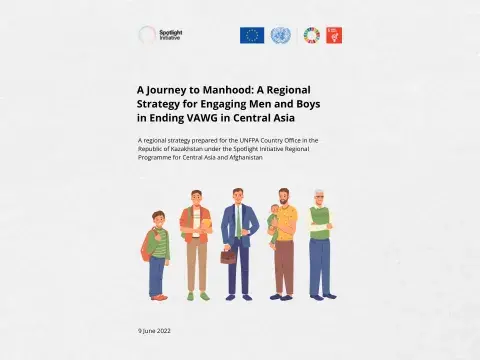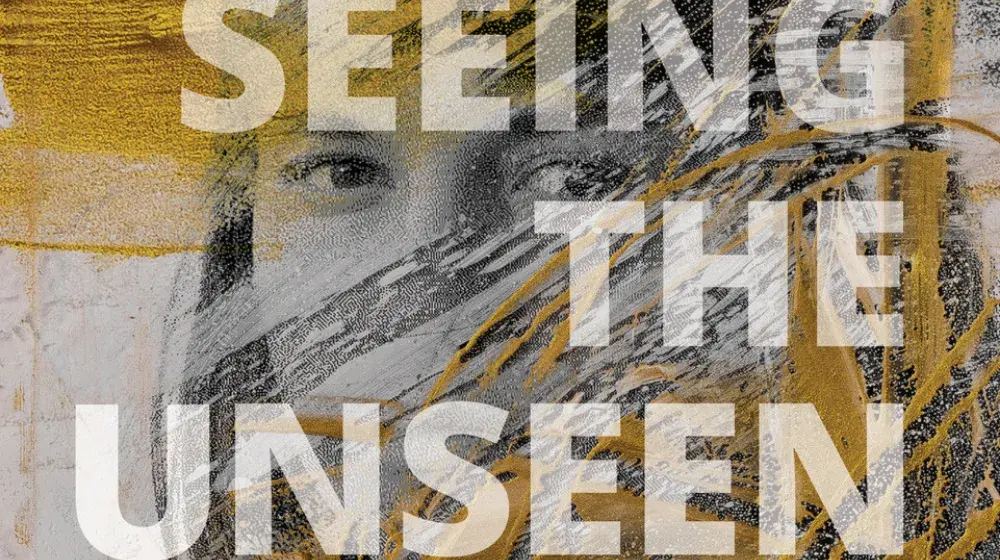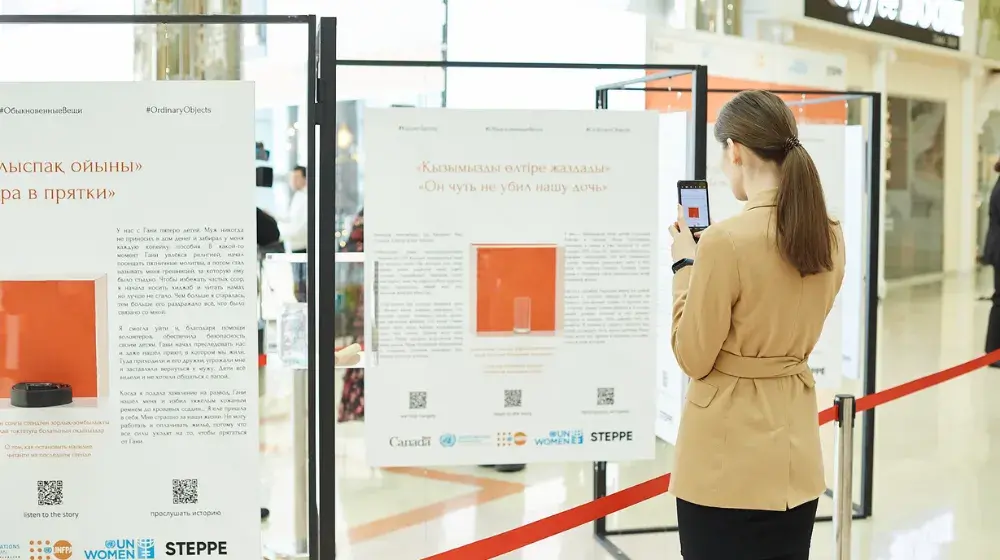14 April, 2021 - KAZAKHSTAN - Nearly half of women in 57 countries are denied the right to say no to having sex with their partners, use contraception or seek healthcare, according to UNFPA’s 2021 flagship State of World Population report, released today.
For the first time, a United Nations report focuses on bodily autonomy: the power and agency to make choices about your body, without fear of violence or having someone else decide for you. The lack of bodily autonomy has massive implications beyond the profound harm to individuals, young people, women and girls. It may potentially depress economic productivity, undercut skills and result in extra costs to healthcare and judicial systems.
Violations of bodily autonomy take on various forms, including sexual, physical, psychological and other types of violence.
In Kazakhstan, 17% of women aged 18–75 who have had or currently have a partner reported having repeatedly experienced physical or sexual violence, or both, by an intimate partner in their lifetime. Women with disabilities are more likely to experience violence than those without a disability. Our survey shows that during COVID-19, 7 out of 10 women with disabilities did not know where to seek help in the event of violence, while one third of those surveyed reported that their relationships with family members had deteriorated during the lockdown.
Violation of bodily autonomy can also be manifested in the lack of choices and opportunities to say “yes” to reproductive health information and services and say “no” to unwanted sexual intimacy, being forced to marry, being subjected to sexual harassment, sexual exploitation and abuse to give just a few examples.
Approximately one third of the adolescents surveyed reported being or having been sexually active, yet the vast majority of them - 91% - are not aware of HIV and AIDS to the necessary extent. Unintended pregnancies also remain high among young girls in Kazakhstan. 16.7% of the girls aged 15-19 surveyed who had indicated being or having been sexually active, said that they had been pregnant at some point in their lives.
“Achieving bodily autonomy depends on gender equality and expanding choices and opportunities for women, girls, adolescents, young adults and excluded groups, - said Giulia Vallese, UNFPA Representative for Kazakhstan and Country Director for Kyrgyzstan and Turkmenistan. - The denial of bodily autonomy is a violation of women, girl and youth’s’ fundamental human rights that reinforces inequalities and perpetuates violence arising from gender and other forms of discrimination.”
The Ministry of Health of Kazakhstan and UNFPA has made substantial progress in raising the importance of promoting gender equality, sexual and reproductive health of young people and strengthening Youth Health Centres.
Kazakhstan’s first ever Clinical Protocol on the healthcare response to gender-based violence was approved last year. To help put the Protocol into practice, the Ministry of Health and UNFPA with support from the British Embassy in Nur-Sultan have developed an online course in Kazakh and Russian for Primary Health Care providers who are very often the “first point of contact” for survivors of gender-based violence..
The “SHYN.KZ” project launched last year by the Ministry of Health and UNFPA is designed to help teenagers, young adults and their parents to learn more about bodily autonomy, the changes that our bodies undergo as they grow, personal boundaries and other very useful practical advice.
“SHYN.KZ” products may be accessed in the following way:
- Website https://shyn.kz/;
- Telegram chatbot https://t.me/shynkzbot;
- You may download the mobile application “Shyn.kz” in the PlayMarket (accessible only on Android telephones).
To find out more about UNFPA in Kazakhstan, please visit our website. To learn more about the campaign “My Body is My Own”, please follow and re-post our stories by following these hashtags:
#МоеТелоМойВыбор #МеніңДенемМеніңТаңдауым #MyBodyMyChoice
#МоеТелоПринадлежитМне #МеніңДенемМағанТиесілі #MyBodyIsMyOwn
For more information please contact Ms. Dina Teltayeva at teltayeva@unfpa.org or via tel.: +7701 7654010.





